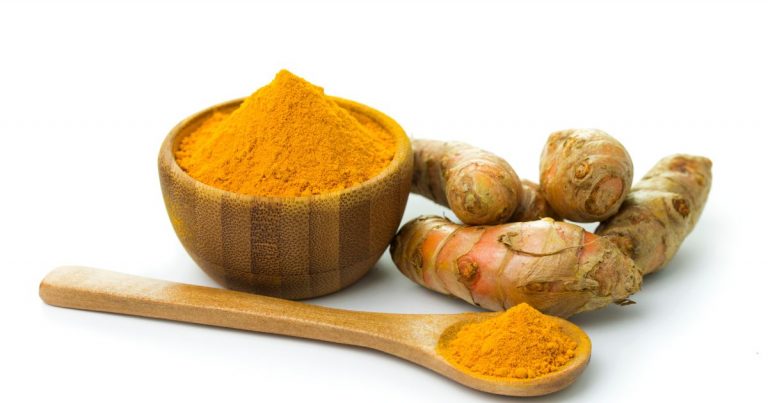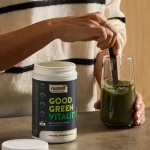

Curcumin is a bright yellow chemical produced by some plants. It is the
principal curcuminoid of turmeric (Curcuma longa) and also a member of the ginger family.
Turmeric has been used for thousands of years as a medicinal preparation, a preservative and colouring agent in foods. Curcumin has a polyphenolic molecular structure similar to other plant pigments such as those extracted from grapes in wine (resveratrol) or in green tea (catechins) or in certain fruit juices (blueberries, strawberries, pomegranates etc.)
In recent years, the use of Curcumin as a food supplement for its health benefits has become much more widely accepted. Curcumin reportedly has anti-inflammatory, immunomodulatory, antimicrobial, chemo-protective and antioxidant properties. When studying Curcumin and its apparent health benefits, a lot of attention has fallen on those whose diets contain a high amount of the compound as an ingredient in food. India has a low incidence and prevalence of Alzheimer’s which may be related to genetics or a particular intake of specific foods.
Some attribute the low incidence of Alzheimer’s to a high intake of turmeric in Asia. As turmeric contains an average of 5-10% curcumin, the daily intake of curcumin in India is approximated to be about 125 mg.
Importantly in cooking curries, curcumin is often dissolved and extracted into fat such as ghee, which may increase its bioavailability.
In lab-based (in vitro) studies, Curcumin has been shown to break down amyloidbeta plaques (a hallmark of Alzheimer’s disease) and whilst studies are on-going, there is increasing evidence that oxidative stress, free radicals, beta amyloid, cerebral deregulation caused by bio-metal toxicity and abnormal inflammatory reactions all contribute to the key events in Alzheimer’s disease pathology and these are pathways that show significant improvement with the introduction of Curcumin.
One such study can be found here.
***
One of the mechanisms under investigation for the chemo-protective effects of Curcumin is the inhibitory effect the large polyphenol has on NF-kB, a protein that when activated can influence genetic coding and transcription. Normally TNF-a (Tumour necrosis factor alpha, a pro-inflammatory cytokine) positively influences NF-kB activity and promotes cell growth, survival and inflammation.
Studies have revealed however that the introduction of Curcumin can inhibit the interaction between the two molecules without reducing TNF-a levels and aside from the inhibition of cytoprotection, the elevated levels of TNF-a can induce cellular death. This mechanism appears to ‘sensitise’ cells to cell death induced by TNF-a by inhibiting cellular survival via NF-kB and is most likely due to Curcumin’s ability to prevent or reduce activation of p38 (mitogen-activated
protein kinases) in the face of other activators.
Curcumin is also able to suppress a transcription factor associated with NF-kB, the Notch family of proteins; this causes the suppressive effects on NF-kB, but Notch-1 overexpression is able to act in reverse and therefore reduce curcumin’s suppressive effects on NF-kB.
When specifically looking at Liposomal Curcumin, the activity of the compound on human pancreatic carcinoma cells was equal to or better than that of free curcumin at equimolar concentrations, down-regulating the NF-xB machinery, suppressing growth and inducing apoptosis of the human pancreatic cells.
For any systemic purpose (requiring absorption from the intestines) then an oral supplementation of curcumin in the range of 80-500mg would be required, assuming an enhancement is combined with the curcumin.
Curcumin is a large polyphenol and inherently poorly absorbed; one of the following enhancements is mandatory for optimal bioavailability:
· Pairing curcumin with Black Pepper (piperine)
· Curcumin phytosomes complexed with Phosphatidylcholine (liposomal encapsulation)
· Curcumin nanoparticles (THERACURMIN)
· Water-soluble curcumin (polyvinyl pyrrolidone)
If one of the above enhancements are not used, then too little curcumin will be absorbed and even doses of up to 4000mg may be wholly ineffective.






Accepting payments via


YourHealthBasket © 2025
detoxpeople Ltd
Registered in England & Wales 07156741
VAT reg GB 103 3641 60
Our new practitioner portal has been released and it’s now easier than ever to link a client’s account and provide them with suggestions using our new protocol system.
Convert your current cart into a protocol which can then be assigned to a linked client.